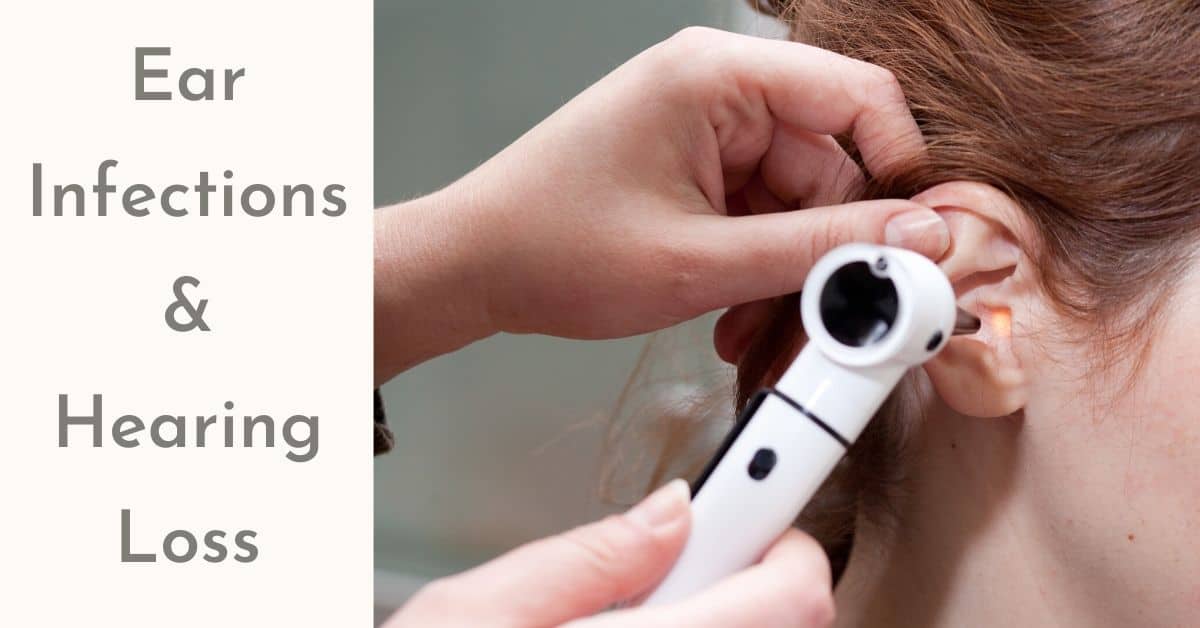- Alcohol and Hearing Health - April 9, 2025
- How Smoking Can Harm Your Ears - March 11, 2025
- Succeeding in the Workplace with Hearing Aids - February 10, 2025
Those who have ear infections currently, or those who have had them as children, will understand how painful they can be.
While there is a wide variety of clinical conditions under the common term “ear infection,” what they have in common is an experience of intense pain in the ear. Fortunately, most ear infections can be corrected quickly enough to help relieve that pain before too long.
Let’s take a moment to clarify the various forms of ear infections and the association they might have with hearing loss before discussing how to avoid them. Although most cases of hearing loss due to ear infections are temporary, they are still a cause of concern when it comes not only to your ear health but also to your hearing health.
What are ear infections?
Many different forms of ear infections affect all parts of your ear, and all of these can cause hearing loss. The most common condition is an ear infection affecting the middle ear, especially in children. Also known as the acute otitis media, middle ear infections can cause intense pain and swelling in the ear, causing fluid to build up behind the eardrum.
Ear infections are prevalent in children
The reason kids are so vulnerable to ear infections has to do with their eustachian tubes.
These eustachian tubes are angled more so that the ones in adults and gravity act upon so that material is moved into the throat from the middle ear. They are also more horizontal, which means debris is more likely to get trapped there and cause an infection.
Additionally, children’s immune systems are not as developed as those of adults, so they’re less equipped to fight off the infection.
How can ear infections cause hearing loss?
Loss of hearing due to ear infections is a conductive hearing loss. Conductive hearing loss (as opposed to a sensorineural hearing loss) affects the outer or middle ear rather than the auditory nerve.
Types of ear infections which may result in a temporary or permanent hearing loss include:
An inflammation or ear canal infection (otitis externa): inflammation, swelling, or ear canal buildup can block the transfer of sound to the middle ear. After the infection has run its course, the hearing usually recovers.
Middle ear inflammation (otitis media): Middle ear infections that aren’t looked at can cause permanent damage to the structures of the inner ear resulting in a permanent hearing loss. This is uncommon, though.
Fluid in the space behind the eardrum (otitis media effusion): This may occur with or without an infection present. The deposition of the fluid may distort sound or block its passage to the inner ear. The fluid behind the eardrum typically clears itself, but if the liquid in the middle ear is infected, the eardrum may burst.
A viral cochlear infection: This can trigger a sudden hearing loss. In these circumstances, the hearing loss may be temporary or permanent.
How can we treat ear infections?
Doctors can usually treat pain associated with an ear infection but do not always prescribe antibiotics. Children’s immune systems are generally best left to fight off bacteria on their own. If the ear infection does not go away in a couple of days, the doctor will typically change the course of action.
If the ear infection is chronic and severe, causing hearing loss regularly, an otolaryngologist can do a minor operation called ear tube surgery. This includes making a small incision into the eardrum where a tube is threaded into it. It helps the fluids to escape through the ear canal, reducing the hearing loss associated with ear infections.
How can we treat hearing loss from ear infections?
If you find yourself with hearing loss related to an ear infection, see your doctor immediately. Over time, the hearing loss can well go away. Hearing assistance may, however, be needed in some extreme cases.
New hearing aid technology is remarkably efficient in assisting hearing, mainly the range of human voices in conversations. Hearing aids are not for everyone, but most people find that they restore enough hearing to help them participate fully in life, including attending social events, traveling, and maintaining confidence in public and private settings.
The first step is to contact us for a hearing test to figure out if you have a hearing loss. If you have hearing loss, we can prescribe hearing aids to help you connect fully with others again.


